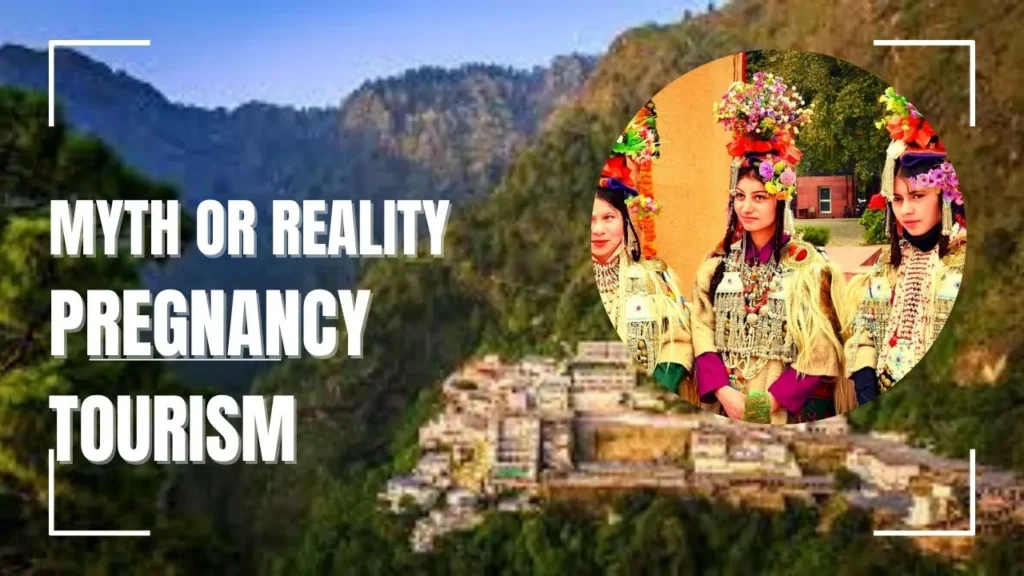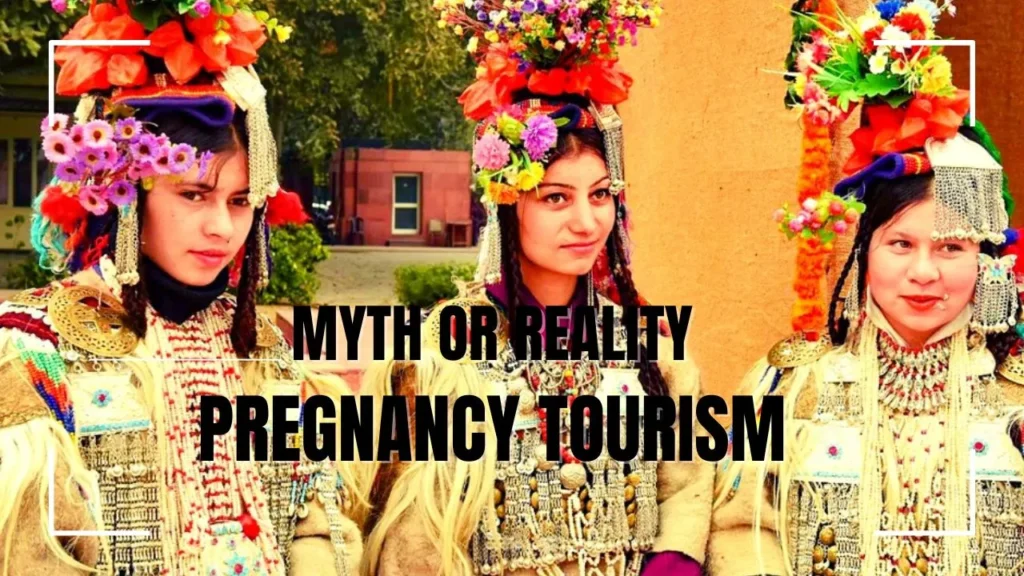Table of Contents
ToggleThe Aryans of Ladakh and Pregnancy Tourism: A Deep Dive into Myths and Realities
Explore the intriguing myths of Pure Aryans and pregnancy tourism in Ladakh’s Brokpa villages. Discover the unique cultural heritage and the allure of the so-called ‘pure Aryan’ genes.

Introduction
Understanding the Phenomenon of Pregnancy Tourism
Pregnancy tourism, a niche yet intriguing form of tourism, involves women traveling to foreign countries to conceive children. This practice has been rumored to take place in the remote villages of Ladakh, India, where European women allegedly visit the Brokpa community seeking to conceive children with what they believe to be ‘pure Aryan genes.’
The Aryan Myth and the Brokpa Community
The Brokpas, residing in the villages of Dha and Hanu in Ladakh, claim descent from soldiers of Alexander the Great’s army. This legend has spurred rumors of a unique genetic heritage that attracts women from Europe, seeking the so-called ‘pure seed.’
Geographical Information
Location and Accessibility of Dha and Hanu Villages
Dha and Hanu are located in the Brokpa region of Leh, approximately 200 km from the main town of Ladakh. These villages are among the few places in India where the Brokpa community resides, known for their distinct Indo-Aryan features.
Climate and Best Time to Visit
The region experiences harsh winters, making the summer months (May to September) the best time for tourism. During this period, the weather is more favorable, and the scenic beauty of Ladakh is at its peak.
Historical Context
Alexander the Great’s Invasion and its Impact
The Brokpas’ claim of their heritage dates back to the 7th century when Alexander the Great’s army invaded India. According to legend, some of his soldiers settled in the Indus Valley, giving rise to the Brokpa community.
The Evolution of Brokpa Culture and Traditions
Over centuries, the Brokpas have maintained a distinct cultural identity, characterized by unique customs, language, and social practices. Their isolation has helped preserve these traditions, which are a significant part of their identity.

Cultural Insights
The Unique Characteristics of the Brokpa Community
The Brokpas are noted for their light-colored eyes, high cheekbones, long hair, and pale skin, distinguishing them from other communities in Ladakh. They live in relative isolation, adhering to strict rules against intermarriage with outsiders.
Festivals and Traditions
The Brokpa community celebrates several unique festivals, such as the Bonona (harvest festival) and the Drokpa festival, which showcase their rich cultural heritage through traditional music, dance, and rituals.
Pregnancy Tourism: Myths vs. Reality
The Origins of the Rumors
The concept of pregnancy tourism in the Brokpa villages is fueled by the belief in their pure Aryan descent. Stories and rumors about European women traveling to these villages for conception have been circulating for years, adding a layer of mystery and allure to the region.
Examination of Evidence
Despite widespread rumors, there is no scientific proof or credible historical evidence supporting the claims of the Brokpas’ unique genetic heritage or the occurrence of pregnancy tourism. These stories remain largely anecdotal and speculative.
The Appeal of the Brokpa Men
Physical and Genetic Traits
Brokpa men are reputed for their distinct physical appearance, which aligns with Indo-Aryan features. This perceived genetic uniqueness is a significant factor attracting women interested in pregnancy tourism.
The Economic Aspect
Some locals suggest that the idea of pregnancy tourism could be a means for the community to generate additional income. However, there are no documented cases or reliable sources confirming such transactions.
Ethical and Social Implications
Ethical Considerations
The notion of pregnancy tourism raises several ethical questions, including the commodification of genetic traits and the implications for the children conceived through such arrangements.
Social Impact on the Brokpa Community
Rumors of pregnancy tourism can affect the Brokpa community’s social fabric, potentially leading to stigmatization or exploitation. It is essential to consider the community’s perspective and address these issues sensitively.
Tourism in Ladakh
Popular Tourist Attractions
Apart from the Brokpa villages, Ladakh offers a plethora of attractions, including Pangong Lake, Nubra Valley, and the monasteries of Hemis and Thiksey. These sites provide a comprehensive cultural and natural experience for visitors.
Activities and Experiences
Tourists can engage in various activities such as trekking, river rafting, and exploring local markets. Experiencing the unique culture of Ladakh, including its festivals and traditional cuisine, adds to the region’s charm.
Travel Tips
Accommodation and Transportation
Ladakh offers a range of accommodation options from budget guesthouses to luxury hotels. Transportation can be challenging due to the rugged terrain, so it’s advisable to hire local guides and drivers.
Health and Safety Precautions
Given the high altitude, visitors should take necessary precautions against altitude sickness. It’s also crucial to respect local customs and traditions to ensure a positive and respectful interaction with the community.
Conclusion
Summarizing the Key Points
While the concept of pregnancy tourism in the Brokpa villages of Ladakh is intriguing, it remains largely a myth without substantial evidence. The Brokpa community, with its unique cultural heritage, adds a fascinating dimension to Ladakh’s diverse cultural landscape.
Encouraging Further Exploration and Responsible Tourism
Visitors to Ladakh should focus on appreciating and respecting the region’s rich cultural and natural heritage. Responsible tourism practices can help preserve the unique traditions of communities like the Brokpas, ensuring that their stories and way of life are protected for future generations.